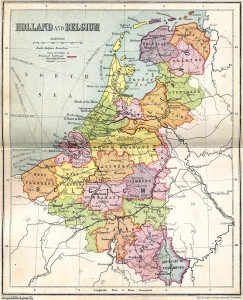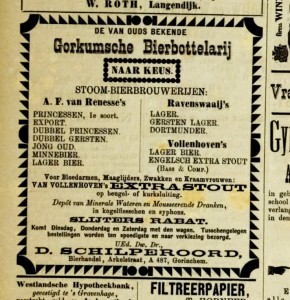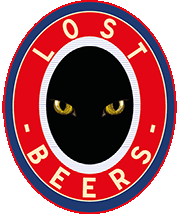The lost beers of Holland
 Tucked in between Britain, Belgium and Germany, it is not surprising that The Netherlands, more colloquially known as Holland, is a beer drinking nation. And a nation that boasts a rich brewing history: in the Middle Ages it was a beer production powerhouse. In fact, it was the Dutch who taught Britain and Belgium how to make beer with hops. Even the very word ‘beer’ in English was taken from the Dutch language. There is however one peculiar thing about the Netherlands: all of its historic beers are lost.
Tucked in between Britain, Belgium and Germany, it is not surprising that The Netherlands, more colloquially known as Holland, is a beer drinking nation. And a nation that boasts a rich brewing history: in the Middle Ages it was a beer production powerhouse. In fact, it was the Dutch who taught Britain and Belgium how to make beer with hops. Even the very word ‘beer’ in English was taken from the Dutch language. There is however one peculiar thing about the Netherlands: all of its historic beers are lost.
Lost? But isn’t Holland flooding the world with Heineken, Amstel and Grolsch? Yet it is. But those beers are lagers – a relatively new beer style that the Dutch borrowed from Germany. Soon after Heineken brewed it first pilsener back in 1886, most, if not all beers Holland knew before were wiped off the map. Of the over 500 breweries the country had around the year 1900, less than twenty were left in 1980, and they produced virtually only lager.
That’s the country I grew up in: Heineken was the beer your dad drank, and basically there was nothing else. ‘A desert of lager’ as the chairman of PINT, the Dutch equivalent of CAMRA, described it back in those days. And everybody thought it had always been that way. Of course, from the eighties onwards the Dutch discovered the rich beer culture of Belgium and started a few craft breweries of their own. But the pre-lager beers of Holland remained a mystery that was largely ignored.
 Because of all this, I was completely puzzled when I discovered an old newspaper advertisement from 1893. An ordinary liquor store in a small town in Holland. Okay, so there was some lager beer on sale, but what about Gersten (‘barley’) lager? Princessen beer? Double princessen? Jong oud, as in ‘young old’? Minnebier (‘wet-nurse beer’)? And Van Vollenhoven’s Extra Stout ‘for anemics, gastric patients, weaklings and women in childbed’? What were these beers?
Because of all this, I was completely puzzled when I discovered an old newspaper advertisement from 1893. An ordinary liquor store in a small town in Holland. Okay, so there was some lager beer on sale, but what about Gersten (‘barley’) lager? Princessen beer? Double princessen? Jong oud, as in ‘young old’? Minnebier (‘wet-nurse beer’)? And Van Vollenhoven’s Extra Stout ‘for anemics, gastric patients, weaklings and women in childbed’? What were these beers?
I did a short search and discovered that so far no-one had ever written anything about these weird beer styles. I had sort-of expected the pre-lager beers of Holland to be more or less similar to the current beers of Belgium: blonde beers, white beers, doubles and triples. But this was different altogether, and what’s worse: I discovered that these now ever-so-common Belgian beer styles were relatively new inventions anyway.
So that’s what I’ll be looking at in these articles: the lost beers of Holland. Along the way we’ll be covering some other countries too: there are plenty of Belgian lost beers, and we’ll take side tours to countries like France, Brazil, South Africa and Indonesia. Also, there are a few myths to be busted: have Leffe beers really been around since 1240? Did brewers really stop brewing in summer, thus needing to produce ‘saison’ beforehand? Oh, and was IPA really the first beer to reach the far East?
And of course, the real goal is to find the recipes for all long-lost beers. Because what’s the fun if you can’t taste those beers again? As it turns out, translating old brewing books into ready-to-brew recipes is a science in itself, but we’ll get to that. There is an enormous variety waiting to be discovered: from warm beer for ice skaters to beer aged in barrels for over five years, from spiced beer for the Indies to beer coloured with poppies. And we’ll throw in some epic failures as well (a glass of Heineken Dry 100, anyone?).
If you thought you knew anything about Dutch beer, think again…






Hi Roel,
Great way to expand your audience! Will you translate from your Dutch site, or will you post different stories here?
Hey Jeroen, most of the articles will be based on earlier Dutch versions, but largely updated wioth new knowledge and facts, and extra recipes. So be sure to check them out!
Fascinating. Well done